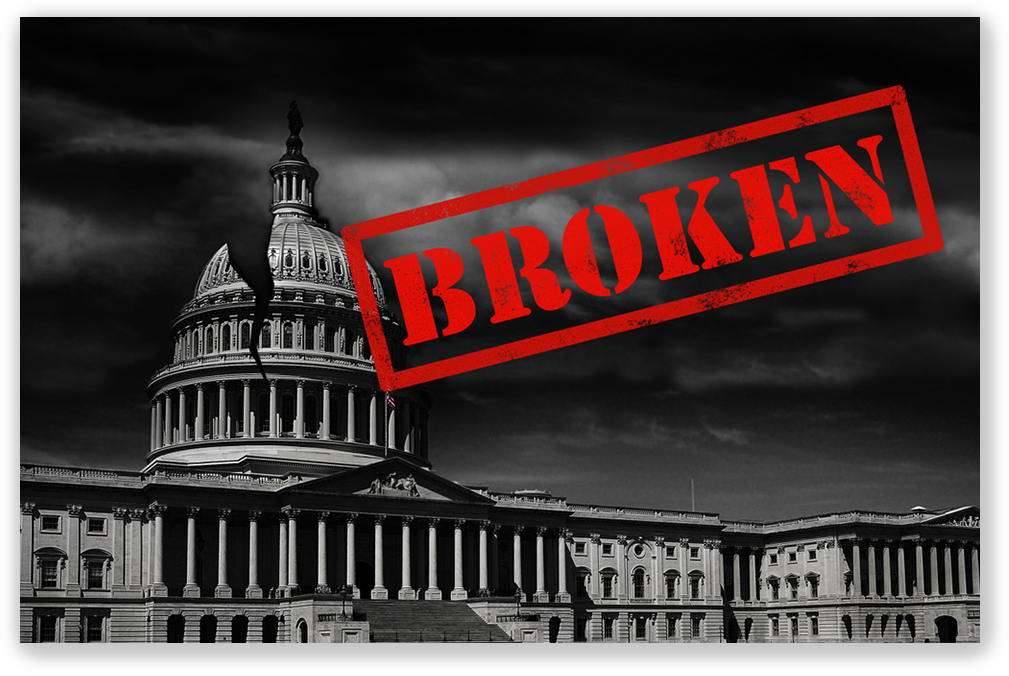We post news and comment on federal criminal justice issues, focused primarily on trial and post-conviction matters, legislative initiatives, and sentencing issues.

THREE TAKEAWAYS FROM THE JUDGE JACKSON HEARING
 Judge Ketanji Brown Jackson endured hours listening to stupidity spoken by power at last week’s Senate Judiciary Committee hearing on her nomination to a Supreme Court seat.
Judge Ketanji Brown Jackson endured hours listening to stupidity spoken by power at last week’s Senate Judiciary Committee hearing on her nomination to a Supreme Court seat.
But for federal prisoners, there are three takeaways worth remembering:
First, the Republicans intend to pound on the Democrats in this year’s mid-term elections as being soft on crime.
Senate GOP leaders said in February that they’d scrutinize Jackson’s role as a former public defender, member of the Sentencing Commission, and as a district judge. But with an increase in crime making headlines this year, the Republican strategy ultimately crystallized around painting Jackson as soft on crime.
At one point, Senator Tom Cotton (R-Ark) blasted Jackson for granting compassionate release to a crack defendant who’d been hammered by a mandatory minimum. Senators Ted Cruz (R-TX) and Josh Hawley (R-MO) both accused Jackson of “a pattern of letting child pornography offenders off the hook for their appalling crimes, both as a judge and as a policymaker,” citing seven cases where, as Hawley put it, “Jackson handed down a lenient sentence that was below what the federal guidelines recommended and below what prosecutors requested.”
 It was all crap, of course. Judiciary Committee Chairman Richard Durbin (D-IL) pointed out that ABC News, CNN, and The Washington Post have defended Jackson’s sentencing read as being mainstream. Andrew McCarthy, a former federal prosecutor, writing in the conservative National Review, called Hawley’s claims “meritless to the point of demagoguery… Judge Jackson’s views on this matter are not only mainstream; they are correct in my view. Contrary to Hawley’s suggestion… she appears to have followed the guidelines, at the low end of the sentencing range, as most judges do.”
It was all crap, of course. Judiciary Committee Chairman Richard Durbin (D-IL) pointed out that ABC News, CNN, and The Washington Post have defended Jackson’s sentencing read as being mainstream. Andrew McCarthy, a former federal prosecutor, writing in the conservative National Review, called Hawley’s claims “meritless to the point of demagoguery… Judge Jackson’s views on this matter are not only mainstream; they are correct in my view. Contrary to Hawley’s suggestion… she appears to have followed the guidelines, at the low end of the sentencing range, as most judges do.”
The “Republicans have rhetorically abandoned those reformist ways and instead have returned to their tough-on-crime roots to attack her credentials for the high court,” the Washington Post said. “Far from the party that followed Grassley, and President Donald Trump, into a new approach to crime, this week’s hearings signal a GOP that is ready to return to the days of Willie Horton.”
For anyone interested in significant criminal justice reform from this Congress, that’s bad news.
Second, Jackson has the credentials and background to be a worthy successor to Justice Breyer, whose seat she is taking. Breyer was one of the Guidelines’ creators, and was the Supreme Court’s dean of criminal sentencing. Jackson has more time as a district court judge (over 8 years) than Justice Sonia Sotomayor (6 years). None of the other seven Justices was served a day on the trial bench. And no one on the Supreme Court other than Jackson was ever a public defender, although at least two of them are former prosecutors. On top of that, Jackson was a staff attorney for the Sentencing Commission and later one of the five commissioners, the only one at the Supreme Court to have such experience.
She responded to attacks on her below-Guidelines child porn sentences in a way that provides a glimpse into her sentencing philosophy:
 “Congress has decided what it is that a judge has to do in this and any other case when they sentence,” she said. “That statute doesn’t say look only at the guidelines and stop. That statute doesn’t say impose the highest possible penalty for this sickening and egregious crime… [Instead] the statute says [to] calculate the guidelines but also look at various aspects of this offense and impose a sentence that is ‘sufficient but not greater than necessary to promote the purposes of punishment’.”
“Congress has decided what it is that a judge has to do in this and any other case when they sentence,” she said. “That statute doesn’t say look only at the guidelines and stop. That statute doesn’t say impose the highest possible penalty for this sickening and egregious crime… [Instead] the statute says [to] calculate the guidelines but also look at various aspects of this offense and impose a sentence that is ‘sufficient but not greater than necessary to promote the purposes of punishment’.”
Third, the child pornography mandatory minimums and Guidelines ranges – especially in non-contact cases – are absurdly high.
In a 2014 case involving a defendant who was caught with 1,500 child pornography images on his computer, Northern District of Ohio federal Judge James Gwin, asked the jurors what they thought an appropriate sentence would be. They recommended a prison term of 14 months – far shorter than the 5-year mandatory minimum, the 20 years demanded by prosecutors, and the 27 years recommended by the Guidelines. Taking the jurors’ view to heart, Gwin sentenced the defendant to the 5-year mandatory minimum.
Reason magazine reported that Northern District of Iowa federal Judge Mark W. Bennett “likewise found that jurors did not agree with the sentences that Hawley believes are self-evidently appropriate. ‘Every time I ever went back in the jury room and asked the jurors to write down what they thought would be an appropriate sentence,’ Bennett told The Marshall Project’s Eli Hager in 2015, ‘every time – even here, in one of the most conservative parts of Iowa… – they would recommend a sentence way below the guidelines sentence. That goes to show that the notion that the sentencing guidelines are in line with societal mores about what constitutes reasonable punishment—that’s baloney’.”
Former federal prosecutor McCarthy agreed: “But other than the fact that Congress wanted to look as though it was being tough on porn, there’s no good reason for the mandatory minimum in question — and it’s unjust in many instances.”
Jackson made a similar argument. “As it currently stands, the way that the law is written, the way that Congress has directed the Sentencing Commission, appears to be not consistent with how these crimes are committed, and therefore there is extreme disparity.”
Ohio State law professor Doug Berman wrote in his Sentencing Law and Policy blog that he has been “quite disappointed by what seemed to me to be a general failure by all of Senators on both sides of the aisle to engage thoughtfully with the deep challenges and profound humanity in any and all sentencing determinations… Critically, in federal child pornography cases, the basic facts are rarely routine, the applicable statutory law is rarely clear, and the applicable guidelines are the very opposite of helpful. In the child pornography setting, applicable statutory law is quite messy – e.g., what is the real difference between child pornography “possession” and “receipt”, how should USSC policy statements be considered here – and the applicable guidelines are widely regarded as badly broken. Those legal realities mean federal sentencing takes on extra layers of challenge in child pornography cases… But, if anything, the senators’ questions highlight Congress’ failures in erecting the sentencing structure that federal judges across the country, including Judge Jackson, operate within. Once the confirmation process is over, the Senate should fix the very system that they criticize judges for following.”
Even Judiciary Committee Chairman Durbin agrees. Last Wednesday, he said Congress was partly to blame for the outdated guidelines. “We have failed in responding to the changing circumstances,” he said, noting that at least 15 years had passed since the body reviewed the child pornography guidelines. “We should be doing our job here.”
Bloomberg Law, Crime Focus at Jackson Hearing Most Intense Since Marshall (March 23, 2022)
Sentencing Law and Policy, In praise of the continued sentencing sensibility of the National Review’s Andrew McCarthy (March 24, 2022)
Washington Post, Republicans, after years of pushing for softer criminal sentences, return to the party’s law-and-order posture in Jackson’s confirmation hearing (March 23, 2022)
Baltimore Sun, Senators questioning of Judge Jackson’s sentencing history during Supreme Court confirmation hearings reveals their own failures (March 25, 2022)
National Review, Senator Hawley’s Disingenuous Attack against Judge Jackson’s Record on Child Pornography (March 20, 2022)
Reason, Josh Hawley Absurdly Suggests That Ketanji Brown Jackson Has a Soft Spot for ‘Child Predators’ (March 18, 2022)
Wall Street Journal, Ketanji Brown Jackson Hearings Shine Spotlight on Child Pornography Law (March 25, 2022)
– Thomas L. Root


